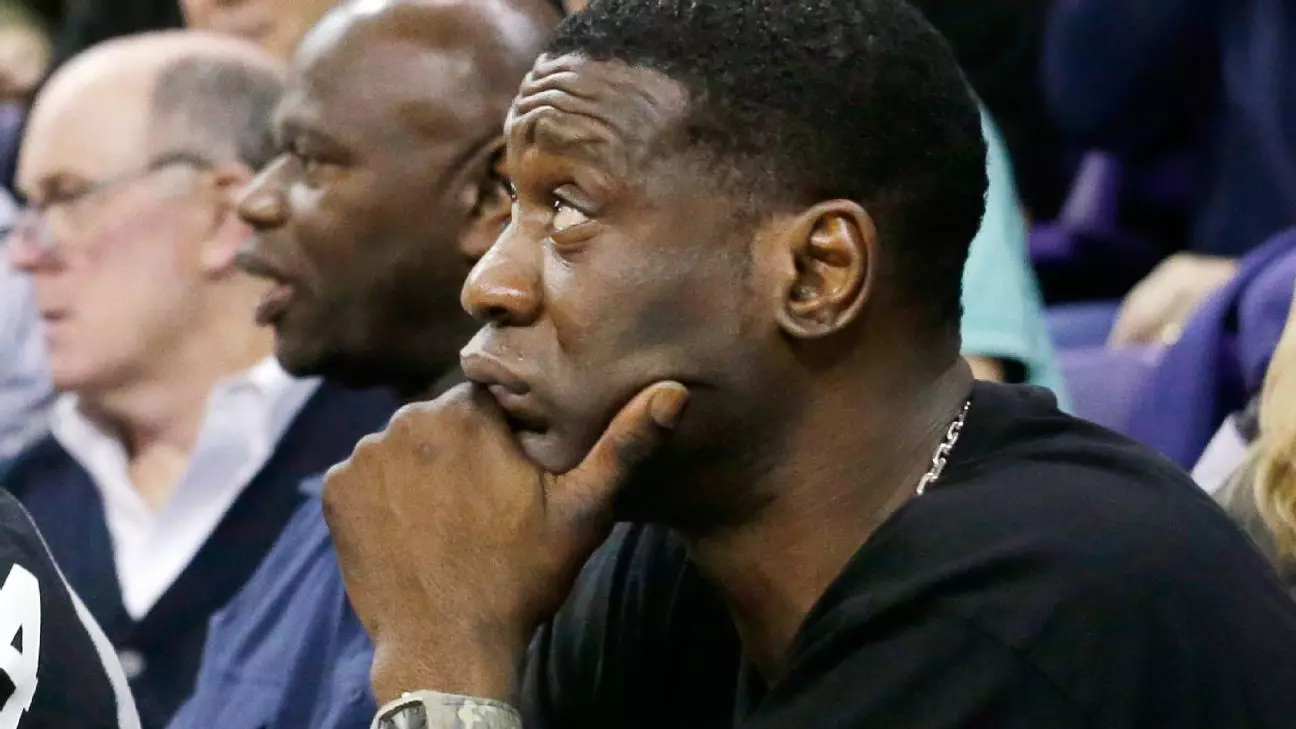Shawn Kemp, a name that once resonated through the halls of NBA history, is now synonymous with a troubling episode that has shocked fans and onlookers alike. The former star forward, celebrated for his explosive gameplay with the Seattle SuperSonics, found himself entangled in a serious criminal charge after an incident in a Washington state mall parking lot. On the surface, the story presents a tale of a precarious fall from grace; however, a deeper examination reveals underlying themes of desperation, loss, and the human quest for justice.
Kemp’s recent legal troubles culminated in a guilty plea for second-degree assault, as he grabbed headlines following a March 2023 confrontation where he fired gunshots towards a vehicle. While no one was physically harmed, the repercussions of such actions resonate far beyond the physical realm. For many, the guilt associated with holding a weapon and the subsequent violation of societal norms paints a disheartening picture of the consequences of poor decision-making, triggered by a personal crisis.
The Personal Crisis Behind the Gunshots
Understanding the events leading to that fateful day is critical. Kemp’s truck had been burglarized, and with it, a plethora of personal items were stolen—some of which bore emotional significance, including cherished sports memorabilia. This incident, justified in Kemp’s eyes as the motivation for his retaliatory actions, starkly highlights the fragile state of a once-celebrated athlete. It poses questions about mental health and coping strategies in the face of violation and loss.
In a world that often glorifies the strong and the victorious, Kemp’s actions unravel the myth of the invincible athlete. They illustrate that behind the accolades and the adoration lies a human being capable of fear, frustration, and, ultimately, poor judgment. The fact that Kemp felt the need to confront the alleged thieves speaks volumes about the emotional toll such a violation had on him. It’s not merely an act of violence; it’s a reaction layered with emotional complexity, tapping into feelings of vulnerability and anger that anyone can relate to.
The Justice System and Its Discrepancies
The plea agreement, entailing nine months of jail time and personal accountability, raises questions about fairness and justice within the legal system for public figures. It’s essential to analyze whether Kemp’s plea reflects an equitable outcome or represents the leniency that often accompanies celebrity status. Critics might argue that the system’s treatment of high-profile individuals can exacerbate public sentiment regarding justice and privilege.
Yet, it also suggests a more profound conversation about restorative justice and the potential for personal growth. Kemp’s attorney asserts that the plea acknowledges the “self-defense nature” of the altercation, hinting that perhaps Kemp felt a legitimate stake in claiming his belongings. This raises profound ethical dilemmas about what constitutes self-defense and how society judges an individual’s response to threat, especially given that crime impacts not only the victim but also their communities.
Moving Forward: The Path to Redemption
As Kemp navigates his sentencing and future, his commitment to regain control over his life is evident. “Moving forward in a positive direction” may sound cliché, but it’s far from simple, particularly for someone whose identity is inexorably linked to a past filled with fame and athletic prowess. The duality of being both a public figure and a person grappling with significant adversity complicates his path forward.
Sentencing and rehabilitation are not just punitive measures; they represent opportunities for reflection, growth, and finally, reconciliation with oneself. In a society ready to quicken its judgment, it becomes crucial to foster an environment encouraging healing rather than solely punitive responses. Perhaps Kemp’s narrative can serve as a cautionary tale and an impetus for change, not just for him but for others who may find themselves in similarly turbulent waters.
Conflicting emotions emerge from Shawn Kemp’s situation. As much as he represents a cautionary tale of a wasted talent, he symbolizes the fragility of human will in confronting life’s challenges. His story, if approached with empathy, could resonate as a testament to resilience, urging society to reflect on forgiveness, understanding, and the much-needed paths toward redemption.

